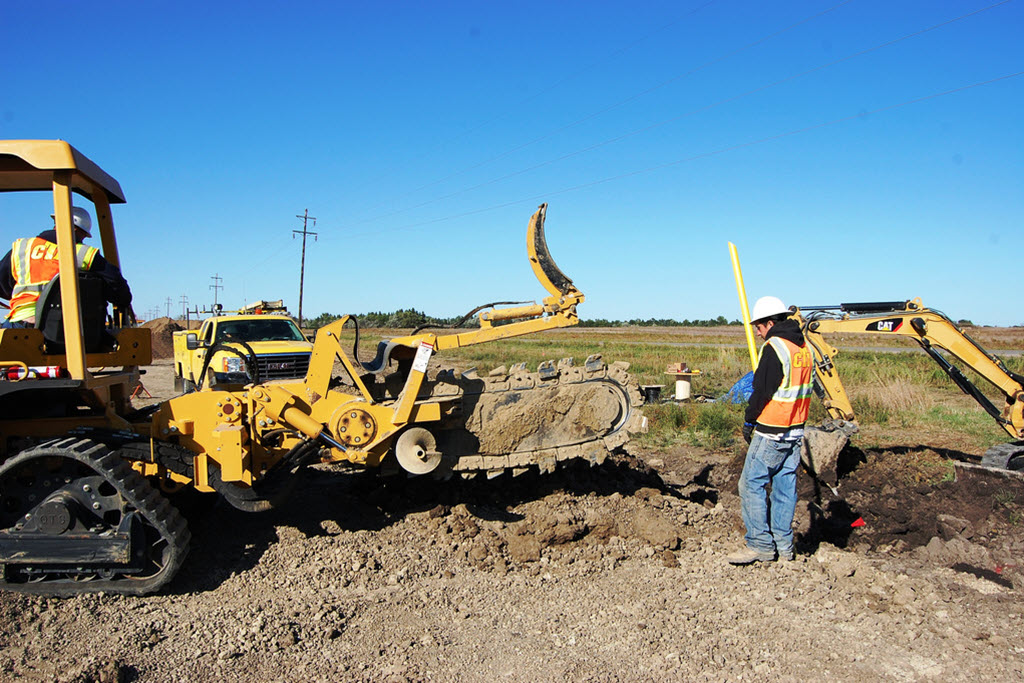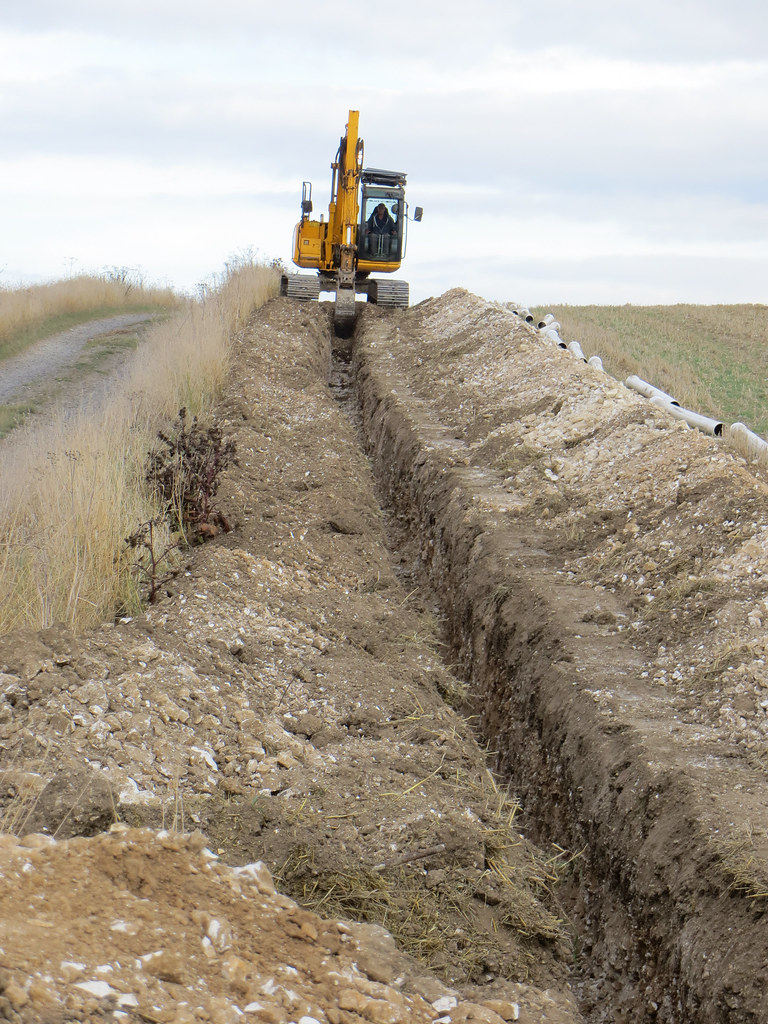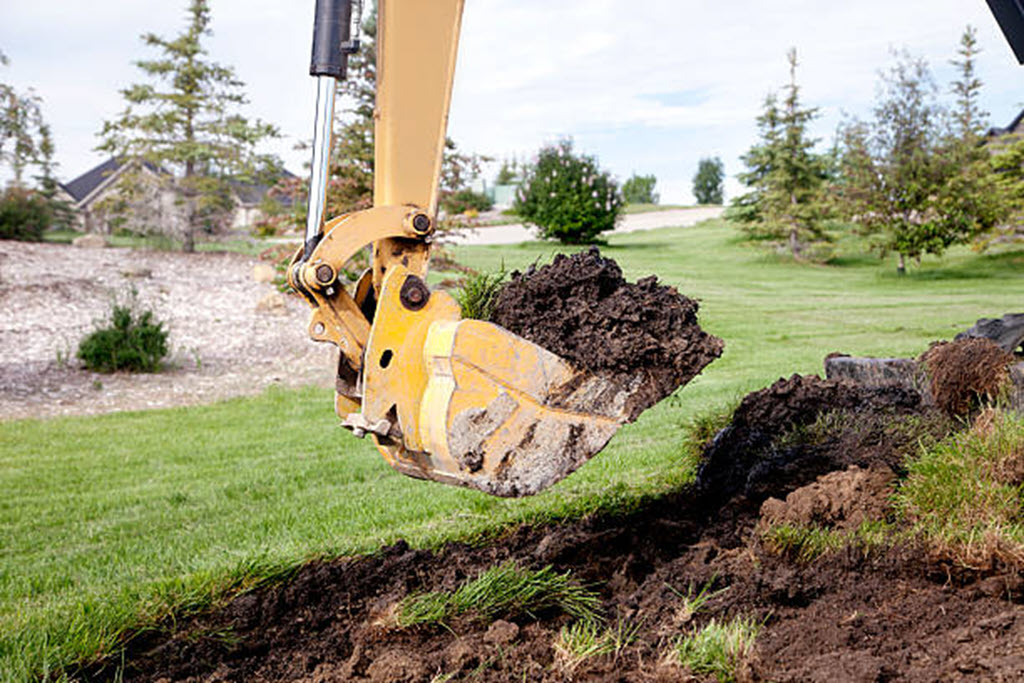Cable Trenchingsin Memphis MI
Cable Trenching Done Right for Secure Utility Installations
We Are Locally Owned & Operated For Over 37 Years
Contact Us Today!
We Serve Businesses In And Around The Following Cities:
About Cable Trenchings
An Insight into Cable Trenching in Commercial Properties
Memphis, as an evolving metropolis, continues to see a boom in commercial expansion. With this growth comes the rising demand for infrastructure development, particularly pertaining to utility and communication lines installation. Central to this configuration is a process considered to be the backbone of modern connectivity – cable trenching. Cable trenching, a responsibility often undertaken by competent trenching contractors, enables the reliable distribution of resources like electricity, water, gas, and data. The following discusses this practical discipline, shedding light on its process, benefits, and implications in a commercial setting.
The Anatomy of Cable Trenching
Cable trenching involves digging a trench in the ground to lay cables and pipes required for utilities such as water, gas, or data cables. For properties in Memphis, the trenching process begins with identifying locations of existing utilities using ground penetrating radar systems by a reliable trenching excavation company, ideally with local expertise, such as D&J Contracting. This is followed by mapping out the ideal route for the new cable or pipe. Once the mapping process is complete, the actual digging commences. This is accomplished either manually, using backhoes and diggers, or mechanically using a trenching machine, depending on the complexity of the project.
Delving into the Benefits
When a trenching contractor steps onto a commercial property, they aren’t merely digging a trench; they are creating a conduit for utility distribution that amplifies the value of the infrastructure. First and foremost, cable trenching ensures uninterrupted delivery of essential services, a pivotal factor for businesses in today’s data-driven landscape. It also aids in keeping the property organized and sustainable, eliminating the clutter of overhead wires. Moreover, planned trenching for utilities reduces the risk of accidents and disruptions through securer, subterranean installations. Therefore, the advantages of performing trenching works extend to both practical and aesthetic aspects.
Cable Trenching in Memphis
Cable trenching is instrumental in Memphis’s commercial realm, aiding in improving the efficiency of businesses. Whether it’s a restaurant longing for a steady gas supply or an IT enterprise requiring a glitch-free data connection, trench digging services have them covered. Memphis resonates with this utility line trenching service due to its pro-business climate and susceptibility to inclement weather conditions. As subterranean utility lines are immune to weather disruptions, this helps companies ensure consistent service.
Take, for instance, a local hospital shifting to digitized systems to improve patient care. Transitioning to an advanced system requires an efficient and reliable data connection. Hence, hiring the right trench digger contractor such as D&J Contracting for creating a trench for the data lines proves instrumental. From facilitating smoother operations to enabling the hospital to provide improved patient care, the real-time utility of cable trenching comes to the forefront in such scenarios.
D&J Contracting: A Reliable Partner
Dedicated trenching and boring contractors such as D&J Contracting are instrumental in providing top-notch cable trenching solutions on commercial properties in Memphis. They provide a range of trenching services, from basic trench digging to creating a trench for a propane line to catering to the needs of high-end data cable installations. Their local expertise and understanding of the terrain offer a reassuring advantage, making them a trusted partner to rely upon.
As Memphis continues to grow, so does the need for reliable trenching contractors. Undertaking commercial projects with efficiency and precision, companies like D&J Contracting help to ensure a future-ready Memphis, contributing to its architectural backbone while catering to emerging demands.
Given the intricacies, potential challenges, and critical role of cable trenching, it’s advisable for any business planning for property development or utility upgrade to partner with an experienced trenching contractor. At a juncture where the city of Memphis is on a steadfast track of commercial evolution, this decision could substantially shape the company’s legacy and contribute to a vision of an integrated, sustainable future.
Cable Trenchings Gallery


Call Us Today to receive your Free Quote for
Cable Trenching in Memphis
Serving: Memphis, Michigan

About Memphis, Michigan
The first European Americans to settle in the area of Memphis were members of the Wells family from Albany, New York; Anthony Wells resided here from 1834 and James Wells from 1835. The fledgling community was originally called “Wells Settlement” after them.
The name “Memphis” was chosen and applied in 1848 when a US post office was established. The village was named for its location on a bluff overlooking the Belle River, which settlers likened to the position of the ancient Egyptian Memphis, “the City on the Nile”. Memphis was incorporated as a village on April 4, 1865. It did not attain the status of a city until 1953.
The area was originally developed for agriculture, as most settlers were farmers. As lumbering became a major industry in Michigan, log rafts were floated down the Belle River into the St. Clair River and south to Detroit. Some lumber was processed in Memphis and Marine City, where there was a major shipbuilding industry. Much was shipped to developing midwestern cities such as Chicago or to the east.
Memphis is in the northeast corner of Macomb County and in western St. Clair County, evenly divided between the two. Highway M-19 is Memphis’ Main Street, leading north 6 miles (10 km) to Emmett and south the same distance to Richmond. Mount Clemens, the Macomb county seat, is 25 miles (40 km) to the south, while Port Huron, the St. Clair county seat, is 20 miles (32 km) to the east.
According to the U.S. Census Bureau, Memphis has a total area of 1.15 square miles (2.98 km), of which 1.12 square miles (2.90 km) are land and 0.03 square miles (0.08 km), or 2.52%, are water. The Belle River passes through the northern and eastern sides of the city, flowing southeast to join the St. Clair River at Marine City.
| Census | Pop. | Note | %± |
|---|---|---|---|
| 1870 | 385 | — | |
| 1880 | 579 | 50.4% | |
| 1890 | 588 | 1.6% | |
| 1900 | 586 | −0.3% | |
| 1910 | 557 | −4.9% | |
| 1920 | 452 | −18.9% | |
| 1930 | 574 | 27.0% | |
| 1940 | 630 | 9.8% | |
| 1950 | 800 | 27.0% | |
| 1960 | 996 | 24.5% | |
| 1970 | 1,121 | 12.6% | |
| 1980 | 1,171 | 4.5% | |
| 1990 | 1,221 | 4.3% | |
| 2000 | 1,129 | −7.5% | |
| 2010 | 1,183 | 4.8% | |
| 2020 | 1,084 | −8.4% | |
| U.S. Decennial Census | |||
As of 2000 the median income for a household in the city was $41,705, and the median income for a family was $52,679. Males had a median income of $41,932 versus $27,019 for females. The per capita income for the city was $19,983. About 7.8% of families and 10.0% of the population were below the poverty line, including 10.5% of those under age 18 and 15.9% of those age 65 or over.
As of the census of 2010, there were 1,183 people, 474 households, and 320 families residing in the city. The population density was 1,056.3 inhabitants per square mile (407.8/km). There were 514 housing units at an average density of 458.9 per square mile (177.2/km). The racial makeup of the city was 97.6% White, 0.8% African American, 0.3% Native American, 0.5% from other races, and 0.8% from two or more races. Hispanic or Latino of any race were 2.1% of the population.
There were 474 households, of which 34.8% had children under the age of 18 living with them, 49.8% were married couples living together, 13.9% had a female householder with no husband present, 3.8% had a male householder with no wife present, and 32.5% were non-families. 27.8% of all households were made up of individuals, and 11.9% had someone living alone who was 65 years of age or older. The average household size was 2.47 and the average family size was 3.02.
The median age in the city was 39.4 years. 24.3% of residents were under the age of 18; 7.9% were between the ages of 18 and 24; 26% were from 25 to 44; 27.9% were from 45 to 64; and 13.8% were 65 years of age or older. The gender makeup of the city was 47.8% male and 52.2% female.
The Memphis Community School District operates an elementary school and a junior/senior high school. Its sports teams are nicknamed the Yellowjackets.
Maryglade College was located in Memphis from 1960 until May 1972.
Call Us Today to receive your Free Quote for
Cable Trenching in Memphis
Related Services in Memphis, Michigan
We Serve Businesses In The Following Zip Codes:
48007, 48015, 48021, 48026, 48035, 48036, 48038, 48042, 48043, 48044, 48045, 48046, 48047, 48048, 48050, 48051, 48066, 48071, 48080, 48081, 48082, 48083, 48084, 48085, 48088, 48089, 48090, 48091, 48092, 48093, 48098, 48099, 48225, 48230, 48236, 48310, 48311, 48312, 48313, 48314, 48315, 48316, 48317, 48318, 48397